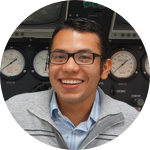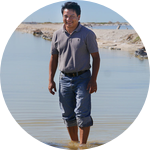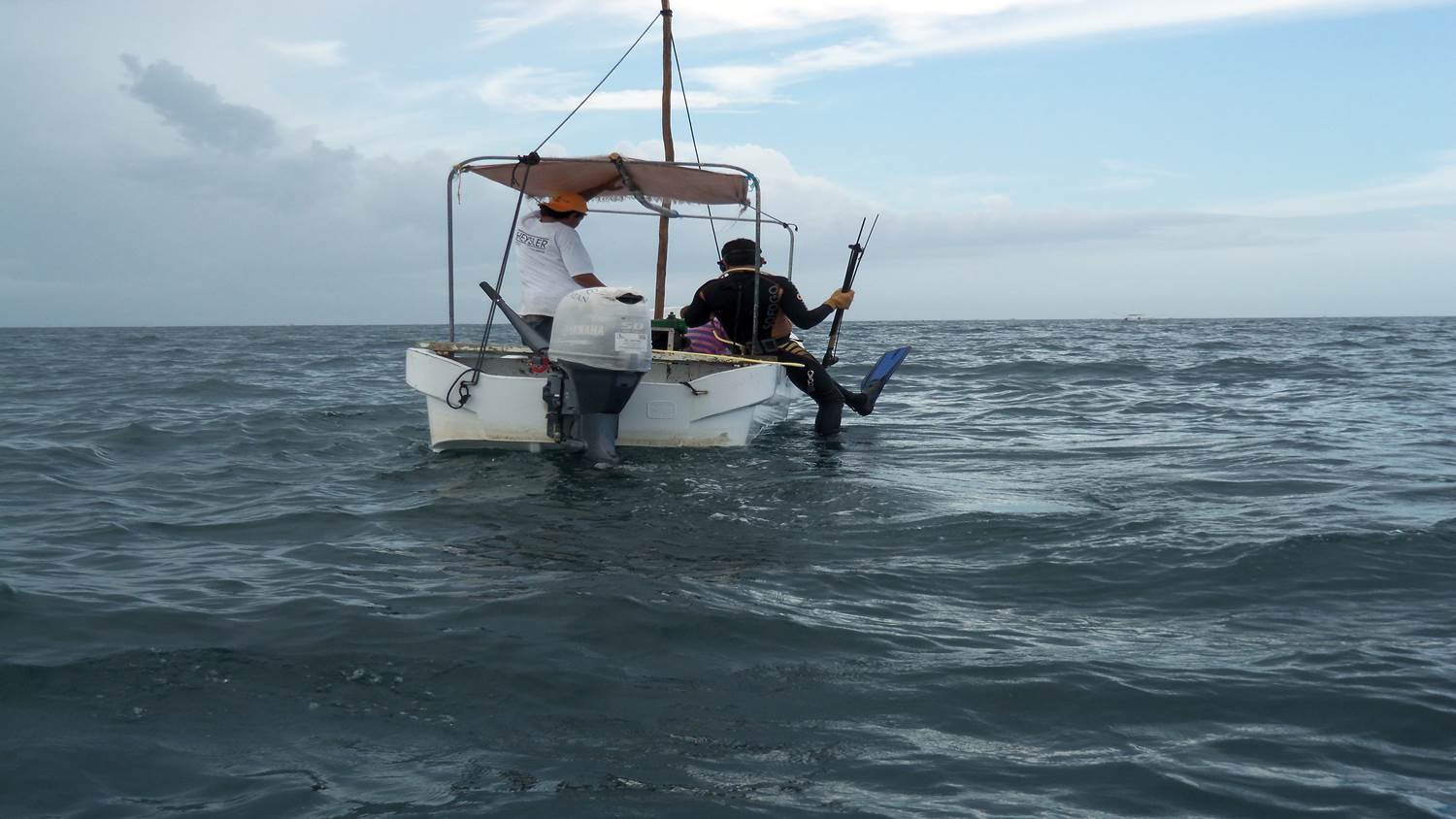About This Project
Artisanal fishermen in the Yucatán dive frequently to capture fish for sustenance, and some of their techniques involve breathing compressed air while underwater. Decompression Illness (DCI) has become endemic among the fishermen, and is caused by the formation of inert gas in the body, such as the bubbling you see in carbonated drinks. With previous data collection and analyses, we identified a proper decompression stop, and now want to implement it among 150 fishermen to see if it reduces DCI.
Ask the Scientists
Join The DiscussionWhat is the context of this research?
Our previous study of 14 fishermen allowed us to collect data on 3,000 dives, in which we identified several patterns. First, these fishermen are diving completely outside of what is considered safe and normal diving, without risk of fatal or non-fatal injury. Second, many of their dives did not result in DCI. Therefore, previous models describing on/off loading (accumulation/clearance) of inert gas might not be predictive of bubbling among these types of dive behavior. This suggests that there might be an adaptive physiological response to such said stressful diving. Our aim is to identify a theoretical compartment of tissue that led to DCI among these fishermen and implement a decompression stop for such said compartment.
What is the significance of this project?
Recreational divers normally experience a decompression sickness (DCS) rate of 0.105%. The villagers we are studying are currently experiencing a 33.0% DCS rate, a 300 fold increase.
Small and large scale fisheries contribute equal amounts to a global supply of marine protein. Yet small fisheries have significantly less ecological impact, and provide millions of families around the world with sustenance and work. It is critical to make the work of these fishing communities sustainable for the divers' health in the long-run.
This research is among the pioneering studies conducted specifically on the dive patterns of these small-scale fishermen. With backing, we can execute the interventions and hopefully provide a revolutionary relief to the artisanal fishermen of the Yucatan Peninsula.
What are the goals of the project?
Our aim is to dramatically reduce DCI in this single fishing village. To do this, we plan to implement a decompression intervention among these fishermen based on the type of fish they are capturing and during which season.
Through data previously collected we identified gas supersaturated in a theoretical compartment of the fishermen’s body. By minimizing rapid decompression and bubbling within these compartments we will decrease the incidence of DCI. Through focus groups and education workshops we will teach the fishermen where and when to make the proper stop so that the inert gas will clear from their blood. Continued workshops and marketing campaigns for the first three fishing seasons will help solidify this intervention and track the change in incidence of DCI among these fishermen.
Budget
As parts of the equipment needed for the fishermen to fulfill their decompression obligation, the timekeeping devices and ropes will allow them to measure the time and depth, respectively, at which they need to make a decompression stop. The laminate cards with printed decompression tables and T-shirts with intervention logos are educational and marketing tools that will be distributed throughout the fishing village.
Meet the Team
Affiliates
Team Bio
Walter Chin is the Principal Investigator on this project. He currently is the Program Director and practicing BSN for the UCLA Hyperbaric Medical Center, President of the Undersea Hyperbaric Medical Society Pacific Chapter, and is pursuing a PhD in nursing. Walter has 12 years of experience in Hyperbaric Medicine and has successfully completed over 800 recorded hyperbaric treatments and approximately 360 hours of ICU and Critical Care treatment.
Oswaldo Huchim is the Co-PI working directly with the fishing communities involved in this project. A PhD student with a focus on interdisciplinary problems of occupational health at the community level, he has worked over 6 years in coastal communities collecting data about risk perception, the prevalence of chronic diseases, and capture species among artisanal fishermen. He uses statistical analyses to strengthen his direct observations about the health-related risks of this fishing population.
Walter Chin
Ocean, Ocean,everything to do with bubbles
Oswaldo Huchim
In 2008, Oswaldo began working with small fishing communities in the Yucatán to study the alarming frequency of decompression sickness among these fishermen. He has worked for over 8 years in coastal communities collecting data and implementing interventions on fishermen's risk perception, epidemiology, and diving behavior. He leads educational workshops with the fishermen to raise community awareness about dive-related health risks and how to manage them.
Lab Notes
Nothing posted yet.
Press and Media
Additional Information
Project Backers
- 9Backers
- 14%Funded
- $894Total Donations
- $99.33Average Donation


